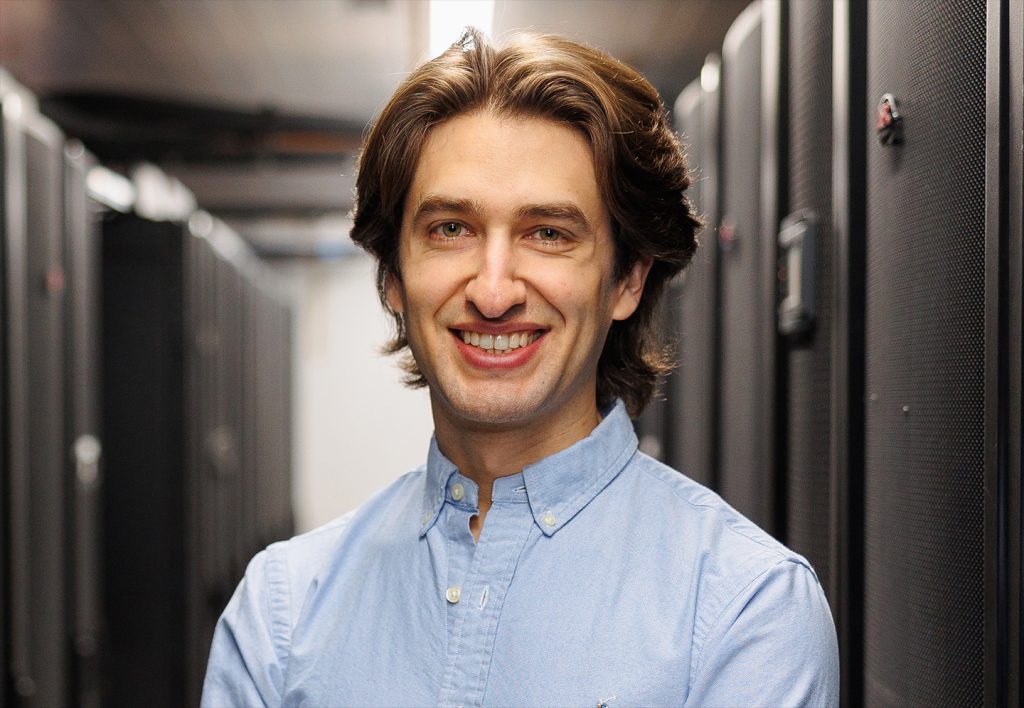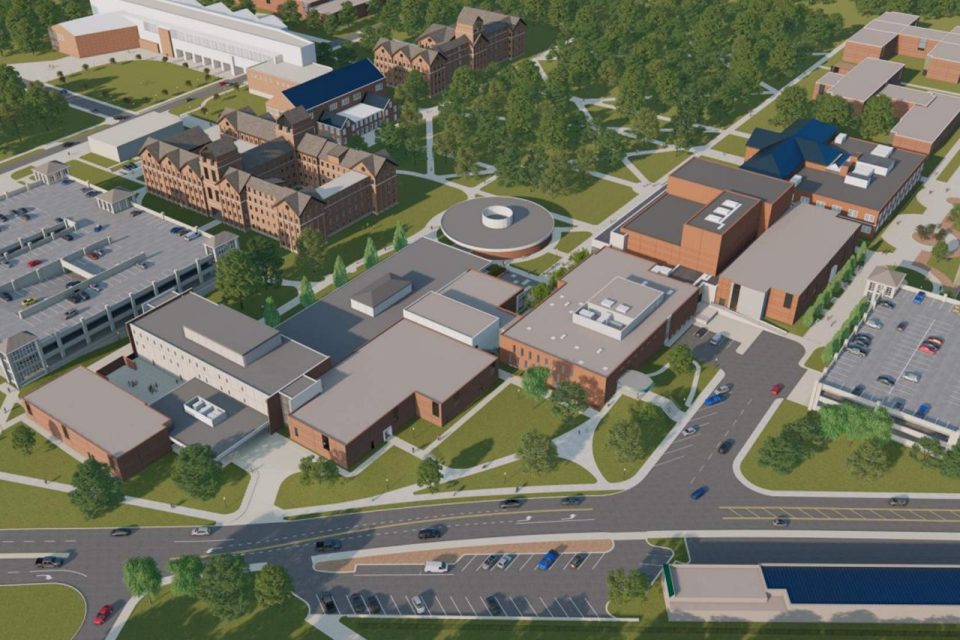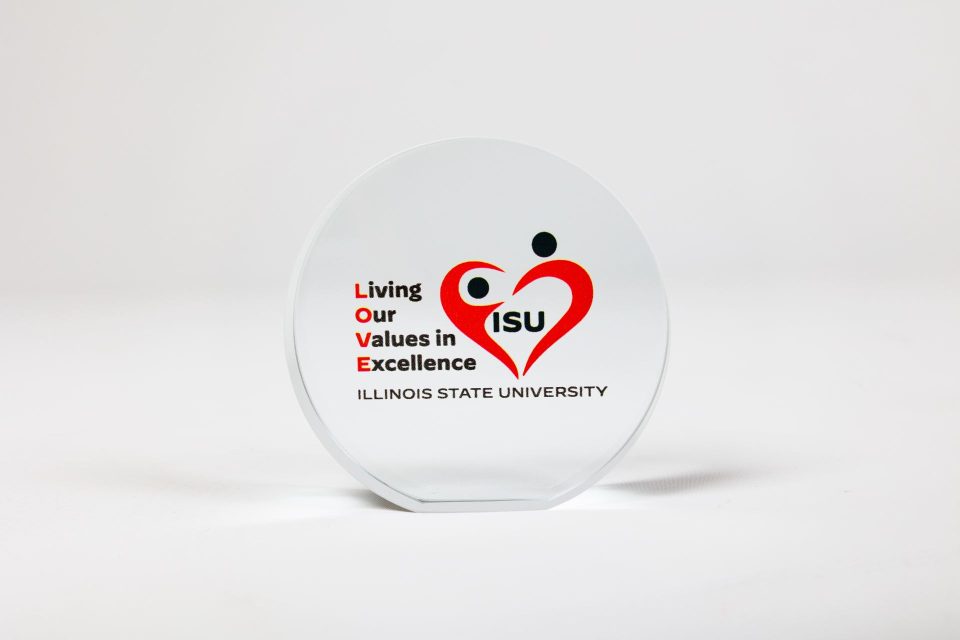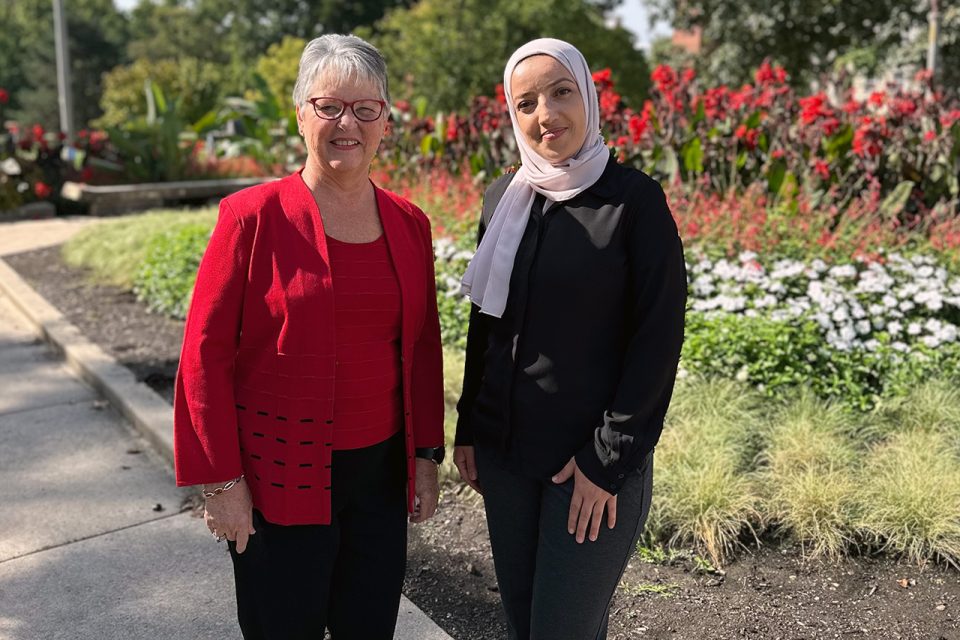Physics grad student publishes class project in top journal
Dany Yaacoub, a second-year master’s student in the Physics Department, has had a paper accepted for publication in Physical Review Letters, the world’s premier physics journal. Even more notably, this paper began as a class project in the spring 2024 semester.
The paper presents the results of complex plasma physics simulations and includes a new model for calculating the mobility of nuclei in plasmas.
“Plasmas are an ionized state of matter consisting of positively charged nuclei and free electrons, making them distinct from solids, liquids, and gases,” Yaacoub said. “In fact, most ordinary matter in the universe, by mass and by volume, is plasma.” The space between stars is filled with the sparse plasma of the interstellar medium, while stars themselves are giant plasma balls. “If anything, solids, liquids and gases are a rare exception,” Yaacoub said.
Yaacoub’s publication comes after taking PHY 462: Astrophysics last spring. When it came time to pick a final project for the semester, Yaacoub used the opportunity to develop his computational research for his master’s thesis in a new direction studying crystallized plasmas.
“Though most people think plasmas form at high heat, making them a bit like a gas, there are many kinds of plasmas,” Yaacoub said. “Plasmas can freeze. Put anything under enough pressure and you can make a solid—so these specific plasmas crystallize, and can be found in dense dead stars, like white dwarfs and neutron stars.” Yaacoub further said that many properties of these plasmas, called “Coulomb crystals,” are relatively poorly studied.
How exactly particles in these crystallized plasmas move, how they “diffuse,” has been an open question for decades, but new supercomputing capabilities at Illinois State University made the new work possible.
“These simulations have to run for days to generate enough data to build a theoretical model,” according to Associate Professor of Physics Matt Caplan, who teaches Astrophysics and is also Yaacoub’s research advisor. Caplan explained that these simulations simply weren’t possible in the past when supercomputers were smaller and computer processors were slower.
“With modern supercomputers it’s fairly easy to get terabytes and terabytes of data,” Caplan said. “Chewing through that data to get new science out is now the hard part, that requires a talented scientist like Dany.”
Yaacoub’s research is supported by the Simons Collaboration on Extreme Electrodynamics of Compact Sources (SCEECS), a group of theoretical physicists funded by the Simons Foundation studying black holes and neutron stars, and his results will be used by scientists across the U.S., Canada, and Israel.
“The enormous pressure from a neutron star’s gravity compresses its plasma to densities trillions of times greater than any matter on earth. It forces the nuclei into a crystalline solid making it almost impossible for them to move past each other. (Yaacoub’s) shown that diffusion is in a sense ‘universal’ – the specific temperature, density, and composition of the plasma don’t matter,” said Caplan, a co-investigator in SCEECS. “These simulations and analysis tell us how fast this material can flow and how it responds to stresses, and that determines how it can break or shatter, for example in a starquake.”
Yaacoub was also the first M.S. student admitted to the Physics Department’s new master’s program, having graduated from Illinois State with a B.S. in physics in spring 2023. He remained at the University as a nondegree-seeking graduate student in fall 2023 to research with Caplan. After the degree program was approved in March 2024, Yaacoub enrolled officially as the first graduate student in physics.
“Starting a research project with Dr. Caplan before the master’s program existed was a calculated risk,” Yaacoub said, before adding with a smirk, “but we’re theoretical physicists. We’re really good at math.”
More Information: Caplan & Yaacoub, “Universal Diffusion in Coulomb Crystals,” Physical Review Letters (2024) [Preprint]
Latest Media Relations
- MLK Jr. Cultural Dinner featuring Karine Jean-Pierre, January 30, 2026Former White House Press Secretary & Special Advisor to President Joseph R. Biden, Jr., and now Author of "Moving Forward" & "Independent" Karine Jean-Pierre will be the featured speaker for the 2026 Martin Luther King Jr. Cultural Dinner on Friday, January 30, 2026. Event registration opens on Wednesday, November 5, 2025 at 10 a.m.
- Preparations underway for WKCFA renovation project, sidewalk closure plannedConstruction crews are working to prepare for a two-year-long construction project that will update and add space to the Wonsook Kim College of Fine Arts (WKCFA). Pedestrian traffic traveling along Beaufort Street will be rerouted starting Monday, November 3, 2025.
- Kristen Bernas honored as first LOVE Award recipient for exemplary collaborationKristen Bernas is the inaugural recipient of the Living Our Values in Excellence (LOVE) Award.
- Board of Trustees action items, October 17, 2025The Board of Trustees of Illinois State University approved several resolutions at its regular meeting on October 17, 2025.
- Illinois State University launches new artificial intelligence lab for health research initiative with funding from National Institutes of HealthIllinois State University has launched an interdisciplinary PAIR project made possible through funding from the National Institutes of Health’s AIM-AHEAD PAIR seed program. The project is a collaboration between Illinois State’s School of Information Technology and Mennonite College of Nursing to use AI for early detection of Atrial Fibrillation.
- Historian and Author Doris Kearns Goodwin to speak at Stevenson Lecture Series, October 6Presidential historian and Pulitzer Prize-winning author Doris Kearns Goodwin will speak at the Adlai E. Stevenson Memorial Lecture Series, co-hosted by Illinois Wesleyan University and Illinois State University on Monday, October 6.














